Life
Sign up for our newsletter
We summarize the week's scientific breakthroughs every Thursday.
-
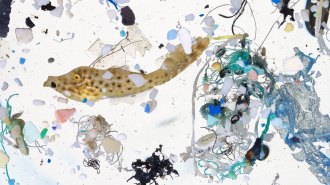 Earth
EarthPlastics outnumber baby fish 7-to-1 in some coastal nurseries
Ocean slicks serve as calm, food-rich nurseries for larval fish. A new study shows that slicks also accumulate plastics, which get eaten by baby fish.
-
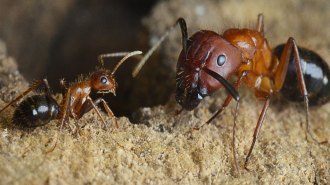 Animals
AnimalsFlipping a molecular switch can turn warrior ants into foragers
Toggling one protein soon after hatching makes Florida carpenter ants turn from fighting to hunting for food.
By Jake Buehler -
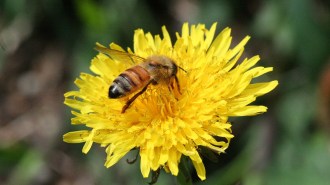 Animals
AnimalsPower lines may mess with honeybees’ behavior and ability to learn
Under power lines, honeybees might suffer neurological effects from exposure to electromagnetic fields.
-
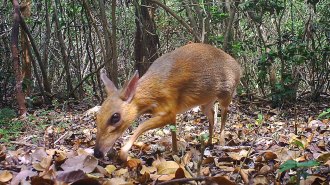 Animals
AnimalsSilver-backed chevrotains have been ‘rediscovered’ by science after 29 years
With help from Vietnamese villagers, researchers captured photos of a species of deerlike ungulate thought lost to science nearly three decades ago.
-
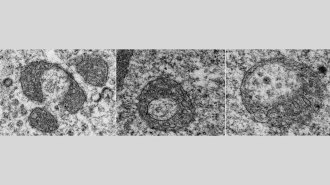 Life
LifeSelf-destructing mitochondria may leave some brain cells vulnerable to ALS
Mitochondria that appear to dismantle themselves in certain brain cells may be a first step toward ALS, a mouse study suggests.
-
 Neuroscience
NeurosciencePeople who lack olfactory bulbs shouldn’t be able to smell. But some women can
Some women who appear to lack the brain structures that relay scent messages still have an average sense of smell, and scientists have no idea how.
By Sofie Bates -
 Ecosystems
EcosystemsCan forensics help keep endangered rosewood off the black market?
Timber traffickers are plundering the world’s forests, but conservationists have a new set of tools to fight deforestation.
By Edward Carver and Sandy Ong -
 Animals
AnimalsApple TV+’s ‘The Elephant Queen’ shies away from hard truths
The Elephant Queen offers an intimate look into the lives of elephants, but the documentary largely avoids threats the animals face.
-
 Neuroscience
NeuroscienceSleep may trigger rhythmic power washing in the brain
Strong, rhythmic waves of cerebrospinal fluid wash into the human brain during sleep and may help clean out harmful proteins.
-
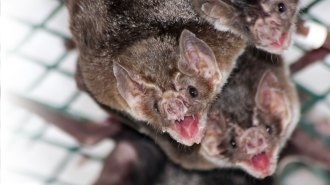 Life
LifeVampire bat friendships endure from captivity to the wild
Vampire bats can form social bonds that persist from a lab setting to the outdoors, suggesting the cooperative relationships are like friendships.
-
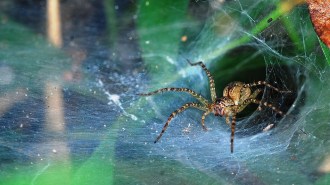 Animals
AnimalsSpider webs don’t rot easily and scientists may have figured out why
Spider silk doesn’t rot quickly because bacteria can’t access its nitrogen, a nutrient needed for the microbes’ growth, scientists say.
-
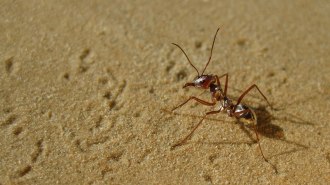 Life
LifeSaharan silver ants are the world’s fastest despite relatively short legs
Saharan silver ants can hit speeds of 108 times their body length per second.
By Susan Milius